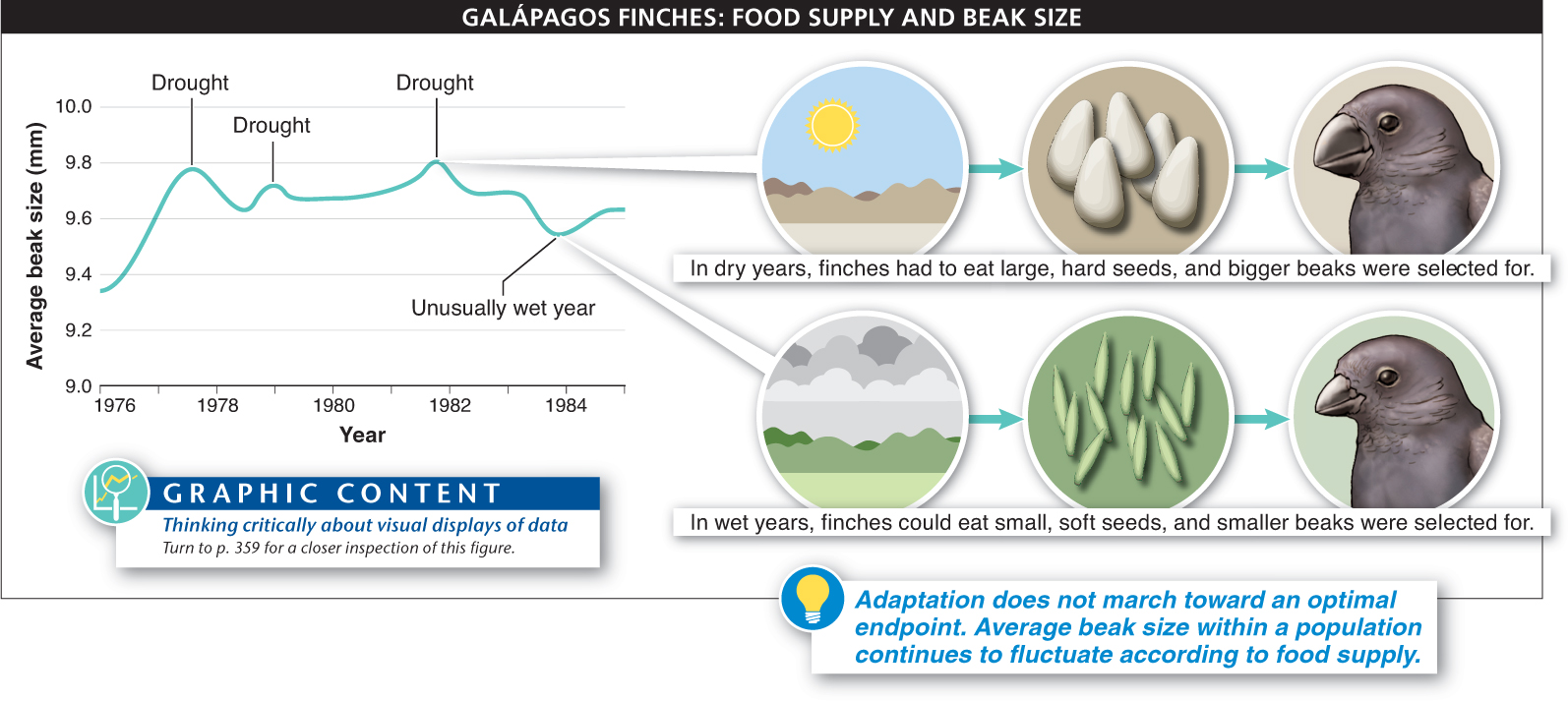In Lewis Carroll’s Through the Looking-
Why doesn’t natural selection lead to perfect organisms?
Consider one of the many clearly documented cases of evolution in nature: the beak size of Galápagos finches. Over the course of a multidecade study, biologists Rosemary Grant and Peter Grant closely monitored the average size of the finches’ beaks. They found that the average beak size within a population fluctuated according to the food supply. During dry years—
The ever-

“I was taught that the human brain was the crowning glory of evolution so far, but I think it’s a very poor scheme for survival.”
— KURT VONNEGUT, American writer
In the next to last paragraph of The Origin of Species, Darwin wrote: “as natural selection works solely by and for the good of each being, all corporeal [physical] and mental endowments will tend to progress towards perfection.” In this passage, he overlooks several factors that prevent populations from progressing inevitably toward perfection:
- 1. Environments change quickly. Natural selection may be too slow to adapt the organisms in a population to such a constantly moving target.
- 2. Variation is needed as the raw material of selection—
remember, it is the first necessary condition for natural selection to occur. If a mutation creating a new, “perfect” version of a gene never arises, the individuals within a population will never be perfectly adapted.
- 3. There may be different alleles for a trait, each causing individuals to have the same fitness. In this case, each allele represents an equally fit “solution” to the environmental challenges.
341
TAKE-HOME MESSAGE 8.13
Natural selection does not lead to organisms perfectly adapted to their environment, because (1) environments can change more quickly than natural selection can adapt organisms; (2) mutation does not produce all possible alleles; and (3) there is not always a single, optimum adaptation for a given environment.
Is there a “perfect” beak size for a seed-
No. During dry years, small, soft seeds were scarce, so a larger beak that was useful for cracking large, hard seeds was more ideal. During rainy years, small, easily cracked seeds were plentiful; therefore, a smaller beak was selected for. What is optimal or “perfect” in one environment actually may be detrimental or imperfect in another environment.